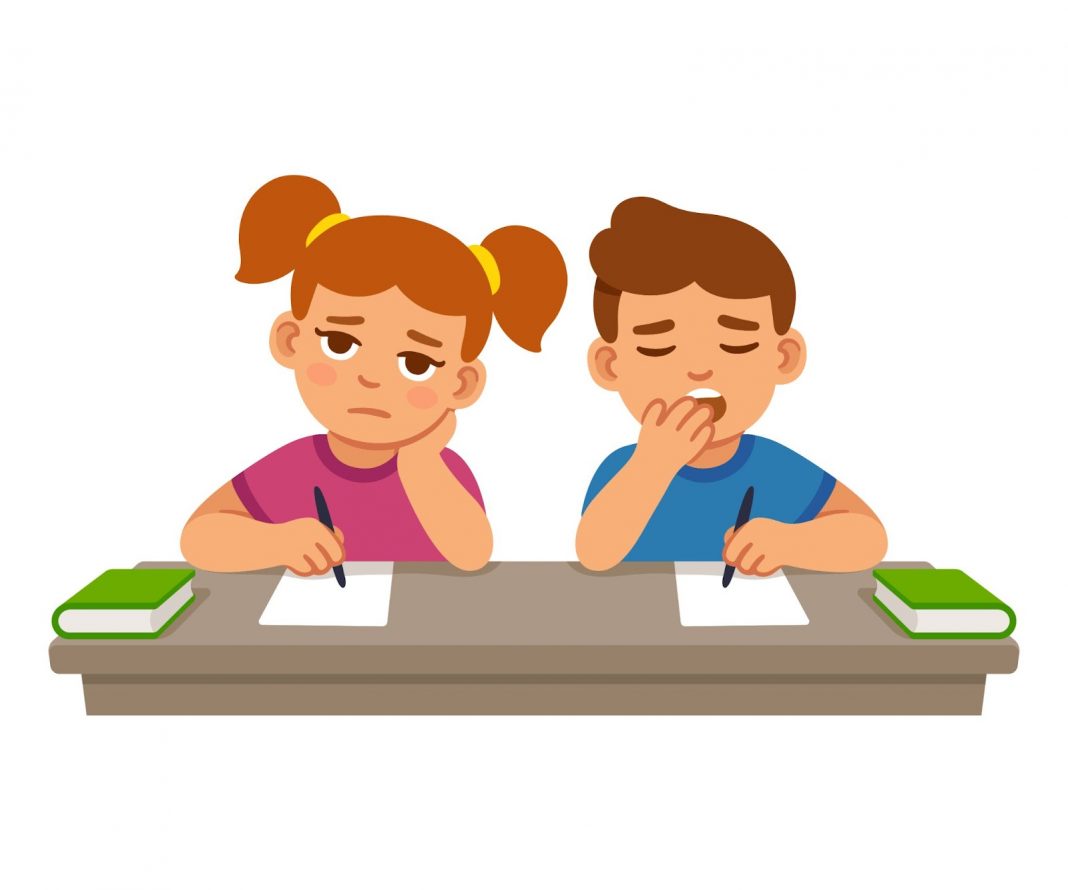- 1. Game-Based Learning
- 2. Project-Based Learning Approaches
- 3. Interactive and Hands-On Activities
- 4. Learning about Modern Education
- 5. Celebrating Every Success
- 6. Connecting Lessons to Real-Life Applications
- 7. Setting Achievable Goals
- 8. Personalized and Differentiated Instruction
- 9. Communication and Asking Questions
- 10. Meeting with the Child’s Teachers
Understanding and addressing why children get bored at school is crucial for their academic success and well-being. Boredom in the classroom can lead to various negative outcomes, from declining grades to losing interest in learning. A national survey highlighted by The 74 Million underscores this issue, revealing that nearly one in three teens are bored most or all of the time in school, with a majority also reporting high stress levels.
Math & ELA | PreK To Grade 5
Kids see fun.
You see real learning outcomes.
Watch your kids fall in love with math & reading through our scientifically designed curriculum.
Parents, try for free Teachers, use for free
This blog aims to delve into the reasons behind this boredom and offer practical tips to keep children engaged and interested in their education. From exploring the impact of monotonous teaching methods to the importance of emotional well-being, we’ll provide insights and strategies to help educators and parents create a more stimulating and supportive learning environment. Let’s begin by understanding the core reasons why boredom occurs in the classroom and how it manifests in students’ behavior and academic performance.
5 Reasons for Boredom in the Classroom
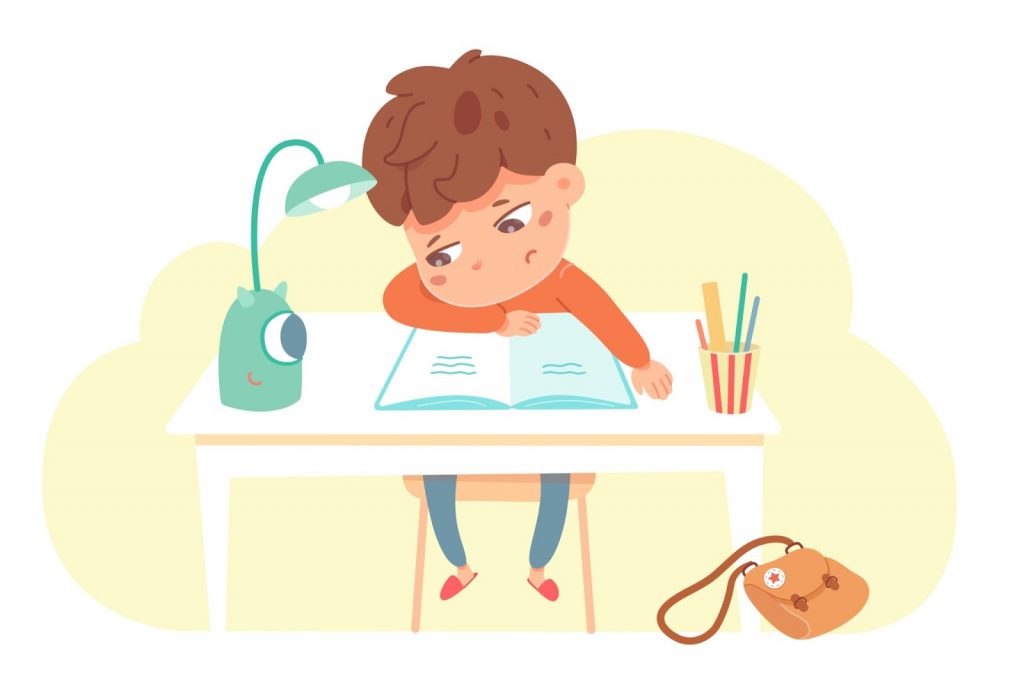
Boredom in the classroom is a multifaceted issue that impacts students’ ability to learn and stay engaged. Understanding the root causes of this boredom is essential for developing effective strategies to counter it. Here are five key reasons why students often find themselves disinterested and disengaged in their educational environments:
1. Overemphasis on Rote Learning: Rote learning, which focuses on memorization rather than understanding, significantly contributes to boredom at school. Learning can feel tedious and uninspiring when students are required to memorize dates, formulas, or definitions without context or practical application.
2. Monotonous Teaching Methods: The impact of monotonous teaching methods on student interest cannot be overstated. When teachers rely solely on lectures or textbook readings, classes can lack the dynamism needed to engage young minds. This lack of variety in teaching styles can lead to signs of boredom, such as inattentiveness or a lack of participation in class discussions.
3. Irrelevant or Unchallenging Curriculum: A curriculum that doesn’t resonate with students’ interests or challenge their intellect can lead to disengagement.
According to The 74 Million, about 30% of high school students feel bored most of the time, partly due to unstimulating content. When lessons don’t connect with students’ lives or fail to push them to think critically, bored students may feel that school is disconnected from their real-world experiences and future aspirations.
4. Lack of Student Engagement: Engagement is key to keeping students interested. Interactive learning, which involves hands-on activities, group discussions, and real-world problem-solving, can combat the signs of boredom in the classroom. When students are passive recipients of information rather than active participants in their learning, their attention and interest can quickly wane.
5. Emotional Stress: Emotional stress significantly affects students’ concentration and interest in schoolwork. The study by The 74 Million found that nearly three-quarters of high school students report feeling stressed, which can exacerbate feelings of boredom. Stress can stem from various sources, including academic pressure, social dynamics, or personal issues, making it harder for students to engage with and absorb educational material.
Related Reading: Best Active Learning Strategies for Kids in the Classroom
5 Common Signs of Boredom at School

Recognizing the signs of boredom at school is the first step in helping a bored kid re-engage with their education. Here are some common indicators that a student might be struggling with boredom:
1. Reluctance to Go to School: One of the most visible behavioral indicators of a student being bored of education is their reluctance to go to school. This can manifest as frequent complaints about school, feigning illness to avoid classes, or procrastination in getting ready in the morning.
2. Inattentiveness in Class: Inattentiveness is a key sign that a student might wonder how to avoid boredom in class. Signs and symptoms include daydreaming, lack of participation in discussions, and difficulty focusing on or completing tasks. These students might often look out the window, doodle in their notebooks, or seem lost in their thoughts.
3. Declining Grades: A sudden or gradual decline in grades can be an academic implication of boredom. When students lose interest in their studies, it often reflects in their performance, with lower grades in tests and assignments than previously achieved.
4. Quietness about School and Schoolwork: Children who are usually talkative about their day but become quiet or evasive when it comes to school might be experiencing boredom. This quietness can be an emotional and social cue, indicating a lack of enthusiasm or interest in their learning or how they feel about their school environment.
5. Loss of Motivation: Long-term impacts of boredom can include a loss of motivation in specific subjects and learning overall. This might show up as a lack of ambition for future planning, indifference towards extracurricular activities, or an overall decrease in curiosity and eagerness to learn new things.
Related Reading: Signs That Your Child is Struggling in School
10 Ways to Overcome Boredom at School
Combating boredom in the classroom is essential for a stimulating and productive learning environment. Here are ten effective strategies to help answer the question of what to do when bored at school and to keep students actively engaged:
1. Game-Based Learning
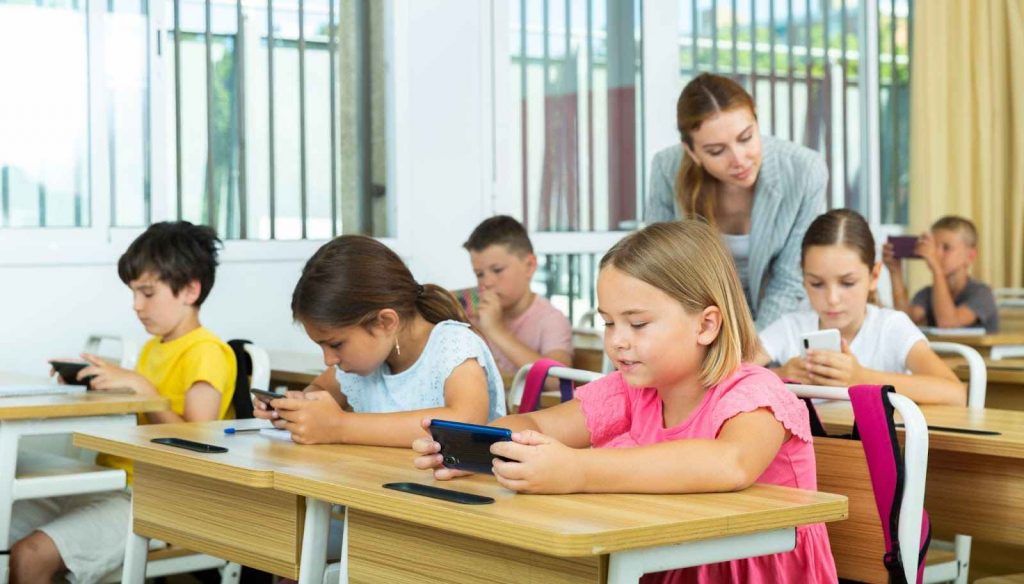
Incorporating game-based learning platforms like SplashLearn can transform education into a fun and interactive experience. These games make learning more engaging and can be an excellent answer to games to play when bored at school, helping students understand complex concepts through playful, interactive content.
2. Project-Based Learning Approaches

Project-based learning (PBL) involves students in real-world and personally meaningful projects. This approach encourages active inquiry and problem-solving, making learning more relevant and less about rote memorization. PBL can answer why do kids get bored by offering a more dynamic way to learn.
3. Interactive and Hands-On Activities
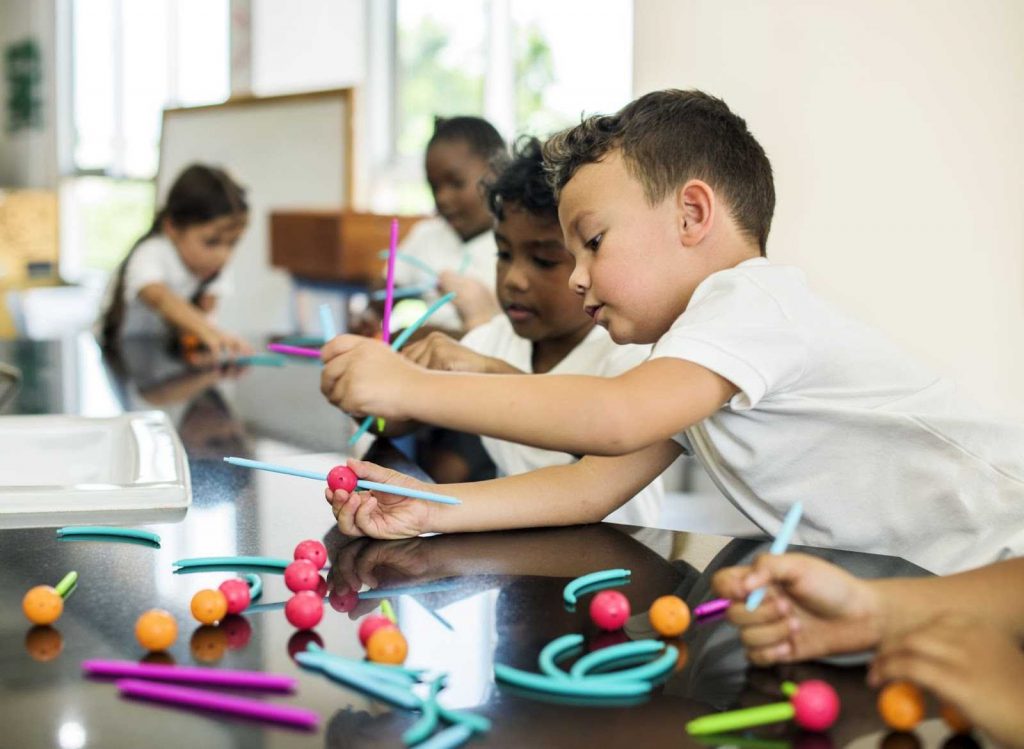
Hands-on activities such as experiments, art projects, or field trips make learning experiential and tangible. These activities can be great things to do at school when bored, as they allow students to apply what they’ve learned in a practical context, enhancing understanding and retention.
4. Learning about Modern Education
Staying informed about the latest educational trends and technologies can help teachers keep their teaching methods fresh and exciting. This approach ensures the curriculum remains relevant and engaging for today’s digital-native students.
5. Celebrating Every Success

Recognizing and celebrating students’ achievements, no matter how small, can significantly boost their morale and motivation. This recognition can be a powerful tool in maintaining students’ interest and enthusiasm for learning.
Related Reading: Adorable and Affordable End-of-Year Gifts for Students
6. Connecting Lessons to Real-Life Applications
Linking classroom lessons to real-life applications can make learning more meaningful and less abstract. When students understand how their education applies to the world outside school, they’re more likely to find the material interesting and valuable.
7. Setting Achievable Goals
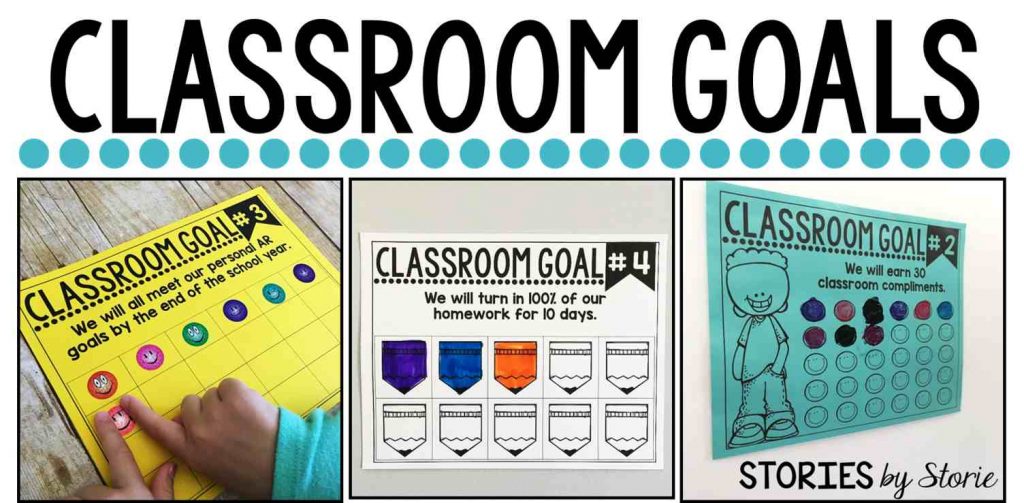
Helping students set and achieve realistic, short-term goals can keep them motivated and focused. Achievable goals provide a clear sense of progress and accomplishment, which is crucial in maintaining interest in schoolwork.
Related Reading: Best Educational Goal Examples that Matter for Students & Teachers
8. Personalized and Differentiated Instruction
Every student learns differently. Personalized and differentiated instruction addresses these individual learning styles and needs, ensuring that each student can engage with the material most effectively.
9. Communication and Asking Questions

Encouraging open communication and allowing students to ask questions fosters a curious, inquiry-based learning environment. This approach helps students feel valued and engaged, driving deeper exploration of subjects.
10. Meeting with the Child’s Teachers

Parental involvement in education, including regular communication with teachers, plays a crucial role in a child’s educational journey. Parents can provide valuable insights into their child’s interests and needs, helping teachers tailor their approach to each student.
Related Reading: Best Parent–Teacher Conferences Tips & Strategies
3 Additional Resources and Tools for Further Engagement
When it comes to keeping kids engaged and interested in their schoolwork, having the right resources and tools can make a significant difference. Here are three valuable resources that can help combat boredom and enhance the learning experience:
1. SplashLearn: A Solution for Boredom at School
SplashLearn, with its interactive and game-based approach, can be an excellent tool for teachers and parents to use when kids show signs of being bored at school. Here’s how SplashLearn can effectively keep children engaged and interested:
Engaging and Interactive Learning
Game-Based Format: SplashLearn’s games are designed to capture and hold children’s attention. Unlike traditional classroom activities, these games provide a vibrant, interactive experience that can transform a boring subject into an exciting challenge.
Variety of Games: With a wide range of games covering different math topics and skills, children can always find something new and exciting, keeping the learning experience fresh and engaging.
Personalized Learning Experience
Adaptive Difficulty: The platform adjusts the difficulty level of problems based on the child’s performance. If a child finds a topic too easy and boring, SplashLearn can introduce more challenging problems to keep them engaged.
Customizable Learning Paths: Teachers and parents can create learning paths tailored to a child’s specific needs, ensuring they are neither under-challenged (leading to boredom) nor overwhelmed.
Immediate Feedback and Rewards
Instant Feedback: Immediate correction and reinforcement the platform provides help keep students on track and engaged. Understanding what they did right or wrong right away helps maintain their interest.
Reward System: SplashLearn incorporates a reward system for completing tasks and mastering new skills. This system can motivate children to continue learning, especially when they might otherwise feel disinterested or bored.
Integration in Classroom and Home
Classroom Use: Teachers can incorporate SplashLearn into their regular teaching to break the monotony of traditional lectures for free. It can be used for individual learning sessions or competitive group activities, making math fun and interactive.
Home Use: Parents can use SplashLearn as a supplementary tool at home. It’s especially useful for turning idle time or boredom into learning and skill development opportunities.
2. Prodigy
Prodigy is a popular online math platform that combines role-playing game (RPG) elements with curriculum-aligned math content. Aimed at 1st to 8th grade students, Prodigy turns mathematical challenges into adventures, making it a captivating way to practice and learn math. Its interactive format and engaging storyline keep students interested and motivated to learn.
3. Oxford Learning
Oxford Learning goes beyond digital platforms, offering personalized tutoring and educational support services for students of all ages. Their programs focus on enhancing cognitive learning skills, building confidence, and developing customized learning strategies that cater to each student’s unique needs and goals. Oxford Learning helps students understand and apply what they learn, ensuring that knowledge is retained and used effectively.
Related Reading: Fun Games to Play When Bored: Boredom Busters for Kids
3 Negative Effects of Boredom on Students
Boredom in the classroom doesn’t just affect the present moment; it can negatively impact a student’s academic and personal development. Understanding these effects is crucial in addressing why school is boring and what can be done to make it more engaging.
1. Impaired Academic Performance: Students consistently bored in class often experience impaired academic performance. This can manifest as lower grades, incomplete assignments, and a lack of participation in class activities. For example, a student who finds math uninteresting might start to perform poorly in that subject, not due to a lack of ability but because of disengagement.
2. Disruptive Behavior and Distractions: When students don’t know what to do when bored at school, they may turn to disruptive behavior as entertainment or expression. This can include talking out of turn, causing distractions for other students, or even acting out in more serious ways. Such behavior not only challenges classroom management but also detracts from the learning environment for everyone.
3. Decreased Motivation and Interest in Learning: Long-term boredom can significantly decrease a student’s motivation and interest in learning. This might result in a student who previously enjoyed science becoming indifferent or even averse to the subject. The ripple effect can be seen in their choices for higher education and career paths, where they might avoid fields they perceive as boring or unengaging, limiting their future opportunities.
Role of Teachers and Parents in Combating Boredom
The fight against boredom in education isn’t just a challenge for teachers; it’s a collaborative effort involving parents. Here’s how both can play a pivotal role:
1. Integrating Technology
Teachers can integrate technology into their lessons to make learning more interactive and engaging. This can include educational apps, interactive whiteboards, or online resources that bring a subject to life. For parents, this means staying informed about these technologies and supporting their use at home, ensuring a seamless learning experience between school and home.
2. Utilizing Engaging Teaching Methods
Engaging teaching methods such as group projects, interactive discussions, and hands-on experiments can significantly impact student engagement. Teachers should strive to incorporate a variety of teaching styles to cater to different learning preferences. Parents can complement these methods by discussing what was learned in school and encouraging exploration and inquiry at home.
3. Encouraging Enrichment Activities
Both teachers and parents can encourage students to participate in enrichment activities like clubs, sports, arts, and other extracurricular activities. These activities break the monotony of regular schoolwork and help develop new skills and interests that could ignite a passion for learning.
4. Supporting Learning at Home
Parental involvement is key in reinforcing what is taught in school and providing a supportive learning environment at home. This can include setting up a dedicated study space, helping with homework, or even discussing topics learned in school over dinner. Parents can also provide additional learning materials or experiences, like educational games, books, or visits to museums and science centers.
Conclusion
Addressing boredom in schools is crucial for nurturing a child’s love for learning and overall development. By understanding the causes of boredom, recognizing its signs, and implementing effective strategies to combat it, educators and parents can significantly enhance the educational experience. From integrating technology and engaging teaching methods to encouraging enrichment activities and supporting learning at home, every effort counts. Together, we can ensure that our children are educated, excited, and inspired by their learning journey.
Related Reading: Enjoyable Kids’ Activities for a Whoopee Time!
Frequently Asked Questions (FAQs)
What to do when you're bored in class?
Consider subtle activities like doodling or reading relevant material if you’re wondering what to do when you’re bored in class. Exploring things to do when bored in class can help you stay engaged without causing disruption.
Can excessive homework contribute to student boredom?
Yes, too much homework can contribute to student boredom as it may lead to burnout and diminish the excitement for learning. A balanced assignment approach incorporating variety and relevance helps maintain student interest.

















